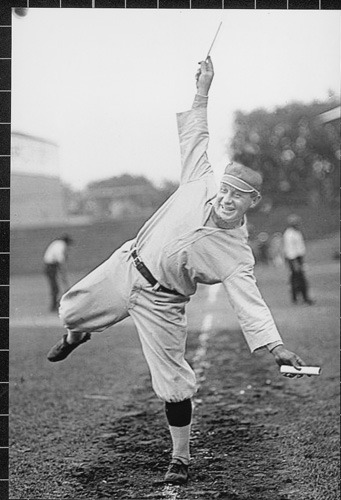2jakes
I'll Lock Up
- Messages
- 9,680
- Location
- Alamo Heights ☀️ Texas
Behold the remarkable Herman "Germany" Schaefer --one of baseball's great screwballs, and the only man ever to steal first base in a major league game.

It happened on August 4, 1911 at National Park in Washington. Schaefer, playing for the Senators in a game against Chicago, had just stolen second base, with teammate Clyde "Deerfoot" Milan on third. On the next pitch, Schaefer, seemingly inexplicably, raced back to first. Confusion reigned on the field over the legality of the move, and White Sox manager Hugh Duffy ran out onto the field to discuss just what the hell was going on with umpire Tommy Connolly. In the heat of the moment, Connolly forgot to call time -- and that was all the incentive Schaefer needed to go steaming back to second, drawing a throw to second base. This time, Milan figured out what was going on, and took his cue and headed for home, but the White Sox were one step ahead of him and he was thrown out at the plate to end the game. Connolly finally had to acknowledge that there was, at that time, nothing in the rule book to prevent a runner from going back to a base he'd previously occupied -- but now there is, thanks to the actions that day of Herman "Germany" Schaefer.
Great stories.
Lizzie, where are you tapping to get such wonderful moments from way back?
I’m loving them.
Thank you!
Last edited:




